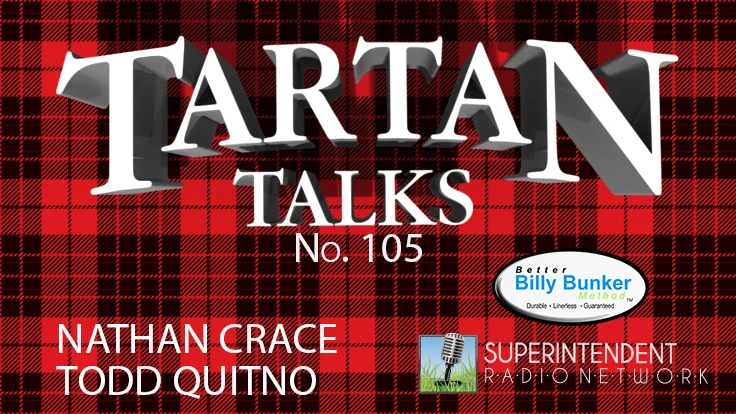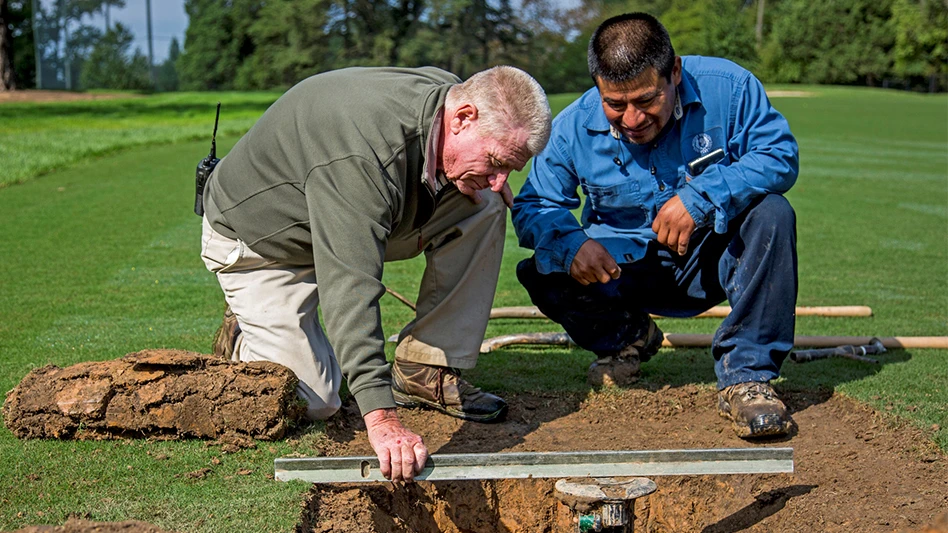 In the 1980s I decided to take a combination of several skills and develop a series of seminars to share information with my fellow golf course superintendents.
In the 1980s I decided to take a combination of several skills and develop a series of seminars to share information with my fellow golf course superintendents.
Some experience of teaching at Baldwin-Wallace College in Berea, Ohio, allowed me to develop a few workshops that I presented in two- and four-hour formats. Little did I know that 30-years later I would have grown my repertoire of seminars to a list of more than 30 on a variety of topics.
It has been fun to present at the Golf Industry Show, PGA Show, CMAA Conference, USGA meetings, GCSAA chapter meetings, and numerous regional turfgrass conferences. With the sharing that takes place with everyone in the room, I often believe I get more out of the presentations than the students do.
With all that experience as a presenter, GCI asked me to share the most frequently asked questions that come up during a seminar, afterward in a private discussion and even months afterward in an email exchange.
Here are a few of those questions you ask most often about career development and what it means to be a golf course superintendent.
Is there a future in this industry? Golf is reflective of the current economy. As a matter of fact, golf is usually a couple years behind the economic indicators for decline and recovery. In my opinion, this recession has created a sense of rightsizing that is matching the number of interested golfers with the number of available golf facilities.
There is no doubt that there will be fewer courses built than just a few years ago, and expect a negative growth rate for the rest of the decade. Much of the real-estate-driven development will be slow as there are already too many golf/real estate projects with a fair amount of empty units. Second-home sales will be slow until the economy stabilizes and people once again plan for their futures.
At a time when we were seeing 300 to 400 new courses built each year there was a greater demand for golf course superintendents to fill the many new jobs. Today, superintendents are living longer and working longer with many well into their 70s. Early retirement is not an option as it may have been in the past. With courses closing and little new development it becomes a supply-and-demand issue. Collectively, many state universities were turning out as many as 1,000 turf graduates into the market per year. Most of these people once went into golf. Now class sizes have been reduced and students have chosen allied fields, such as sports turf management and lawn care.
So my ultimate answer to this question is that there certainly is a future in the industry. There is always room at the top for those who excel in any field. It may be tougher to work your way up the career ladder today than ever before, but those who apply themselves and work hard can do it.
It may take a bit longer to reach career goals, but the strong will survive.
 Should I have a second major? Statistics show a bell-shaped curve for the age of golf course superintendents who are GCSAA members. Wisdom would dictate that not everybody will be a superintendent for their entire career. My best advice is not to wait until you are 55 to begin thinking about the merits of an alternate career path. There are several ways to prepare yourself for the twilight of your career. Also, these are the same ways to prepare yourself for other opportunities at your career's early and mid points.
Should I have a second major? Statistics show a bell-shaped curve for the age of golf course superintendents who are GCSAA members. Wisdom would dictate that not everybody will be a superintendent for their entire career. My best advice is not to wait until you are 55 to begin thinking about the merits of an alternate career path. There are several ways to prepare yourself for the twilight of your career. Also, these are the same ways to prepare yourself for other opportunities at your career's early and mid points.
The more education you have the better off you are. Employers look for people who can not only grow grass but also have business skills. Those with turf degrees coupled with business, communication, administration or public relations will fare well. This not only makes you a good superintendent, but it gives you the option to look at director of golf and general manager opportunities. Those skills also allow one to prepare for positions of administration in organizations and potential corporate management or even ownership.
Should someone ever decide to seek an alternate career they would be best positioned to move into positions – such as sales or marketing – with more than just a turf degree.
|
Top 10 Best of the Bizarre
|
How do I separate myself from others in a job search? This answer could take up a whole book, but I will try to compress it into a few take-home ideas.
Education is the best investment one can make. Some are fortunate to have a four-year degree or greater. Statistics have shown the education level of GCSAA members has steadily increased over the last 80-plus years. It is not uncommon for most superintendents to have a college education. Keep working on what education you have and get any certificates, associate degrees, etc. if you were unable to obtain that baccalaureate degree. Don't underestimate the value of continuing education and certification. Employers do consider this. And when all things are equal among candidates, the amount or level of continuing education can be the deciding factor.
Do your research on any job opportunity. With the Internet, it is so much easier to research job opportunities than ever before. In one sitting I can find out quite a bit about a golf course, including their structure, mission statement, staff, possible finances, architect, grass type and hole layout. Beyond the Internet, you can find out a lot about a job from sales reps, agronomists, current and former employees. Employers are impressed with candidates who have done their homework in researching the job opportunity.
When applying for a job be sure your skills match the requirements asked for. When composing your cover letter accentuate those matching skills to get the attention required to get an interview. Most jobs I have filled recently have more than 200 applicants so alignment of skills and needs is important.
If your résumé is boiler plate then you really haven't set yourself apart. Take the time and effort to have a career coach evaluate your résumé and make changes that will set you apart. This does not mean embellishing your accomplishments, but rather stating them in a format that will get the reader's attention. I like to use bullet points with a lot of action verbs such as "managed," "directed," "developed," "implemented," "reduced costs" and "designed." Too often résumés contain boring information about staff numbers you worked with and your golf course's budget. If that was 20 years ago, then it is probably irrelevant. Résumés should shout out a number of reasons why the employer should hire you.
When one gets to the point of being offered an interview don't show up empty-handed. Many superintendents who I have worked with develop a thorough packet that they provide to the search committee prior to the interview. These packets include accomplishments at prior positions including before-and-after pictures. I always advise putting together a summary that evaluates the golf course you are applying at and indicating a general plan for improving the course. After all, so many properties ask who can take their course to the next level – so why not spell it out for them?
How important is networking? One of my favorite lines is "it's not what you know but who you know." It is also not just who you know but who they know, as well.
People with networks get the jobs. Yes, they need to be able to do the job and have the right amount of experience and education. But inevitably, they are in the loop for what jobs are open and also have a good set of references and contacts who recommend them.
References and knowing the right people cannot be underestimated in your career path. Some say luck got a person the better job. I say through networking and hard work you make your own luck happen.
If you had it to do over again, what would you do differently? I've had a pretty good career and I'm not sure I would do much differently. If I had the time I would have studied for an MBA. I have developed much of my business acumen through trial and error and the many mentors I have worked for and with. That practical application of principles was invaluable.
And for those of you who have played golf with me... I probably could have used a few golf lessons along the way.
As most teachers will tell you, there is no greater reward than having former students tell you how they put your information into practical application and how it helped advance their career. Guess that's why I keep on teaching and helping others to make this an even better profession.
Bruce Williams serves as principal for both Bruce Williams Golf Consulting and Executive Golf Search. He's a frequent GCI contributor.

Explore the January 2012 Issue
Check out more from this issue and find your next story to read.
Latest from Golf Course Industry
- Beyond the Page 65: New faces on the back page
- From the publisher’s pen: New? No way!
- Indiana course upgrades range with synthetic ‘bunkers’
- Monterey Peninsula CC Shore Course renovation almost finished
- KemperSports and Touchstone Golf announce partnership
- PBI-Gordon Company hires marketing manager Jared Hoyle
- Mountain Sky Guest Ranch announces bunker enhancement project
- GCSAA names Joshua Tapp director of environmental programs








